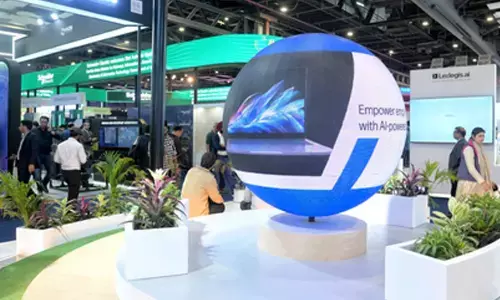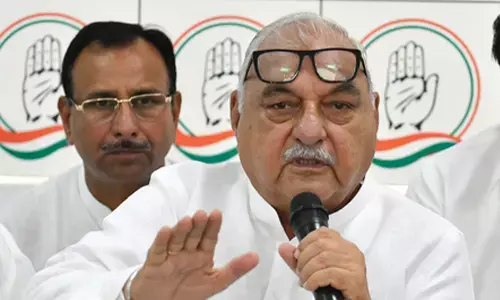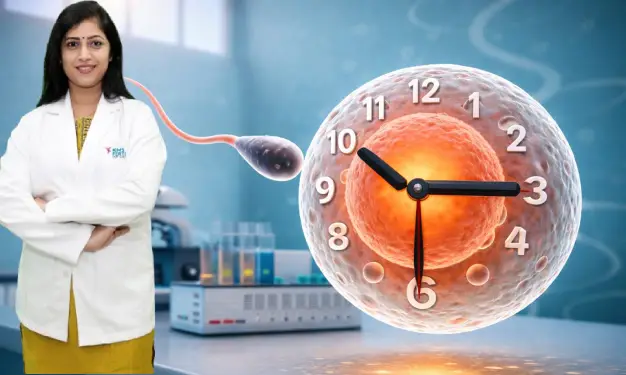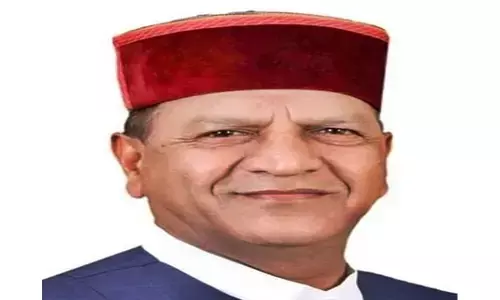Modi govt's policies resulted in exponential & unprecedented infra creation: FM Sitharaman
Share :
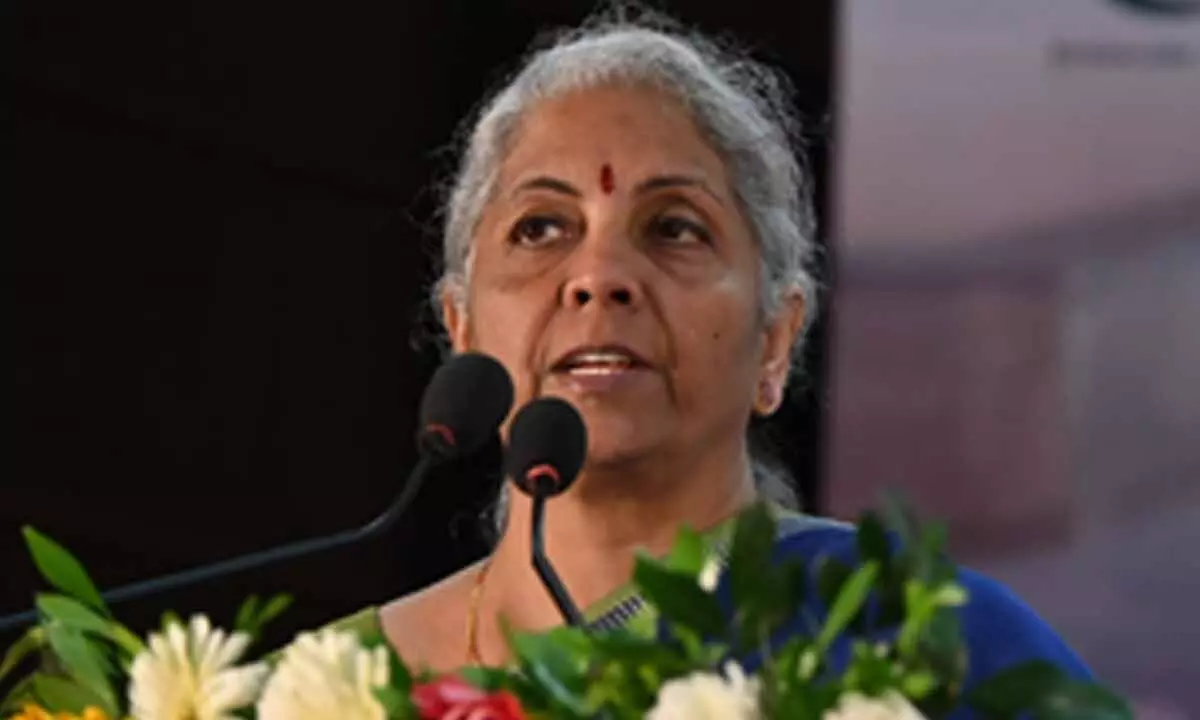
Finance Minister Nirmala Sitharaman said on Wednesday that Prime Minister Narendra Modi-led government's policies in the last 10 years have resulted in an "exponential and unprecedented" infrastructure creation in the country across the roads, power, railway, ports and aviation sectors.
New Delhi: Finance Minister Nirmala Sitharaman said on Wednesday that Prime Minister Narendra Modi-led government's policies in the last 10 years have resulted in an "exponential and unprecedented" infrastructure creation in the country across the roads, power, railway, ports and aviation sectors.
Taking to X, the Finance Minister cited statistics to drive home her point and criticise the erstwhile Congress government on its economic performance.
The Finance Minister said that a staggering 3.74 lakh km of rural roads have been built since 2014 under PM Gram Sadak Yojana which was almost double the figure of rural roads built earlier.
"Our government has worked to ensure stable, reliable power for all, impacting lives and driving economic growth. Under PM Modi, India has transformed from power-deficient to power-sufficient by adding 193 GW of generation capacity (249 GW to 442 GW)," Nirmala Sitharaman pointed out.
Investments in upgrades, grid modernisation, and smart technologies are being done to help reduce power outages, voltage fluctuations, and disruptions, the Finance Minister remarked.
"As of November 2023, the availability of power in rural areas increased from 12 hours in 2015 to 20.6 hours, and in urban areas, it increased to 23.8 hours while 100 per cent rural electrification was achieved in 2018," she pointed out.
Nirmala Sitharaman also highlighted the fact that the share of renewable energy sources in total installed capacity has increased from 14.1 per cent to 32.5 per cent.
The Finance Minister also said that metro rail projects have significantly improved the ‘ease of living’ in urban areas by providing improved connectivity, reduced traffic congestion, and safe travel.
Since 2014, the Metro network has expanded around 4 times, from 248 km of operational lines in 5 cities to 939 km in 20 cities. As the first of the eight RRTS corridors, the Delhi-Meerut stretch will be completed by June 2025, she added.
Nirmala Sitharaman also said that India's first state-of-the-art 'Namo Bharat' train with a design speed of 180 kmph has been introduced in the Delhi-Meerut RRTS corridor.
Highlighting the government's achievements in the aviation sector, the Finance Minister said: "India's skies are now more connected than ever due to our government's efforts, making air travel accessible and boosting regional connectivity."
The Union Minister said that India's aviation network has doubled with the construction of 83 new airports since 2014.
Operational airports have gone up from 74 in 2014 to 157 in 2024, while passenger traffic has increased from 169 MPPA (Million Passengers Per Annum) in 2014 to 376 MPPA in 2024.
As many as 559 routes were operationalised under UDAN Scheme, which improved air connectivity to underserved regions, she added.
Listing the achievements in the ports sector, Sitharaman said the BJP-led government has actively engaged in improving India's maritime sector to promote the blue economy.
A 10-year blueprint "Maritime India Vision 2030 (MIV 2030)" was released to boost the maritime ecosystem.
FDI norms were relaxed to attract investments in port development and operations. Up to 100 per cent of FDI was allowed for port and harbour construction and maintenance projects, she added.
IFSCA notified 'ship lease' as a financial product, and it provided a framework for enabling ship finance and operating leases.
She highlighted the fact that the Average Container Dwell time for India, as per World Bank's Logistics Performance Index (I-PI) Report-2023, has achieved a level of 3 days only, compared to 4 days for countries like the UAE and South Africa, 7 days for the US and 10 days for Germany.
"The efforts for infrastructure demonstrate our unwavering commitment to improving the lives of our citizens, unlike the Congress, which only paid lip service to infrastructure. Their negligence left the country lagging while our efforts propelled us forward with real, tangible progress on the ground," the Finance Minister observed.
Taking a dig at Congress, she said: "It is also unwise to expect that the Congress would have learnt from their mistakes."
"Congress returns to their neglect of Capex (capital expenditure) and infrastructure. The 2024 Budget presented by the Congress government in Karnataka slashed the share of capital expenditure in total spending by 28 per cent," she added.



